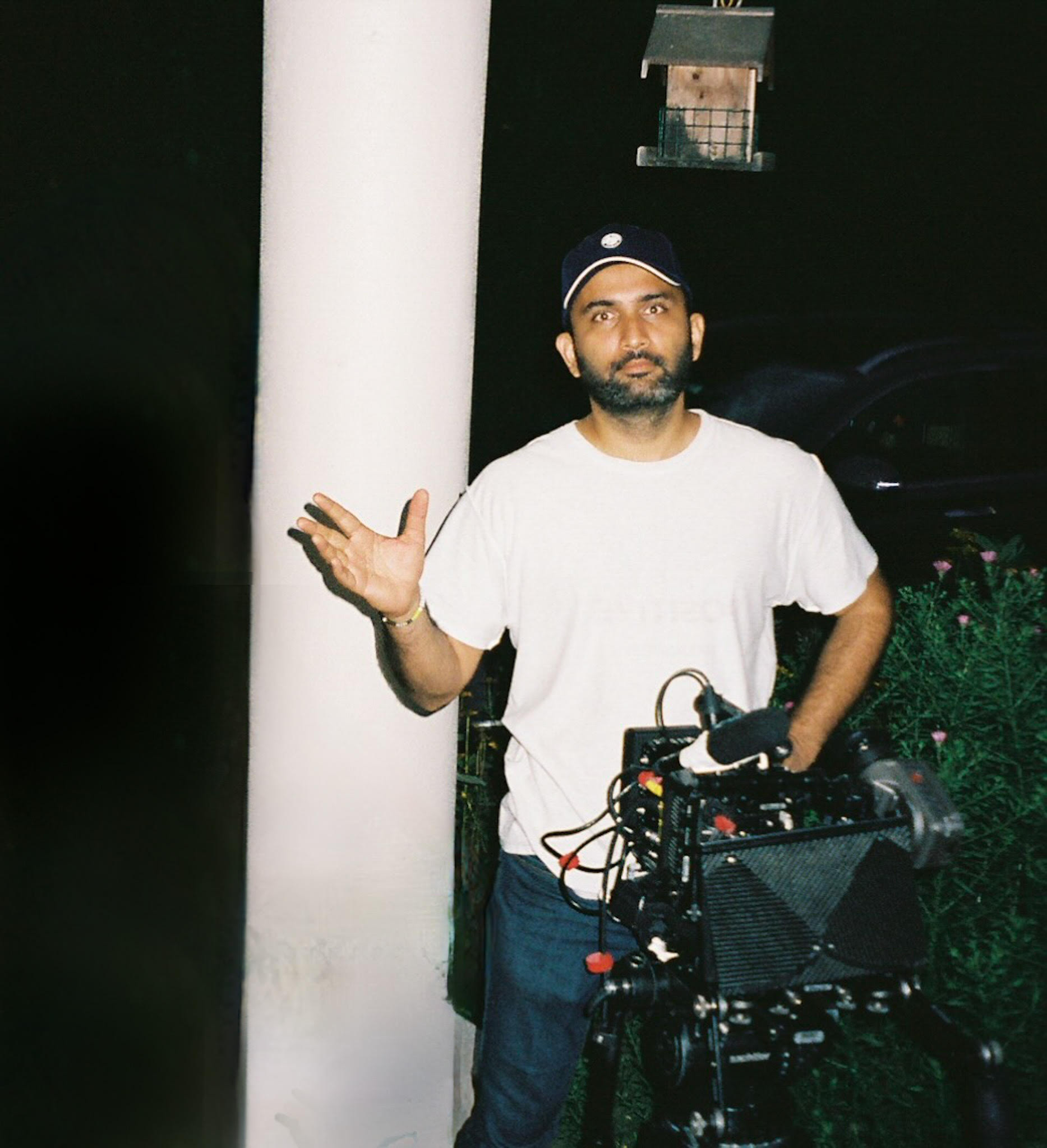On Your Radar is a Grad Film News segment that features a current student. We asked Nigam Bhandari a few questions and this is what he said.
Where do you consider home and what is it like there?
My family is originally from the Nepali mid-mountains, but I was born in a city near the Indian border. My parents’ jobs forced them to move to different places all the time, which meant I grew up bouncing around different schools and communities, constantly trying to fit into new and unfamiliar places while never being able to settle down anywhere. I'd switch in and out of local accents to avoid being mocked for how I sounded, to make friends only to lose them and do it all over again in a new place. This upbringing conditioned me to treat everyone and everything as transient, believing that nothing lasts.
The concept of "home" remained a tricky notion for a long time. Even after living in Kathmandu for over 15 years, I never felt like I belonged there. Then, in April 2015, when a series of earthquakes devastated the city and people were trying to get the hell out of this place, I found myself clambering to get back in. I needed to be there. I realized in that moment that I had become attached to a place for the first time in my life. I had feelings for that damn city.
In Kathmandu, you could find yourself sitting at the foot of a thousand-year-old temple, sipping your morning tea, while studying masterful ancient wooden carvings that depict all possible positions that two (sometimes more) humans (and sometimes non-humans, I recall) can have sex in, while families cremate their deceased loved ones just 30 feet away. It’s a place that ignores no part of life or death; contradictions happily coexist and are celebrated out in the open. Even after two years of living in New York, I still sometimes find myself searching for mountains on the horizon to orient myself. I’m used to them telling me where I stand.
What is currently inspiring you as a filmmaker?
I tend to approach the world with an obsessive childlike curiosity; prodding and pushing boundaries, ruffling feathers and finding humor in everything - which isn’t always considered an acceptable approach to the divisive topics I’m attracted to - religion, rationality, contested histories. So I think what inspires me at the moment is the mission to strike a balance between my need to understand and empathize, and my mischievous desire to get people to confront uncomfortable ideas. I want to discuss heavy topics without being prescriptive, and also just want to let people have a good time.
I am fascinated by how narratives are shaped in the attempt to answer the “big” questions of the world – whether it’s a scientist trying to figure out the universe or people proclaiming the meaning of God. At the same time, I don’t believe that answering questions is necessarily the best approach to storytelling.
I’d consider it a success if, as a filmmaker, I can persuade someone to sit with my thoughts for an hour and a half, and nudge them away from their own beliefs to consider a new perspective for a brief moment. Not to convince them of a specific answer, but of the importance of asking the question in the first place.
What has been your most rewarding experience at NYU Tisch Grad Film so far?
The best thing about being at NYU Tisch Grad Film is the diversity and enthusiasm of the people around me. Everyone here has the same passion for the same things as me, but with different stories to tell. We’re not competing with each other.
That kind of supportive environment is new to me, because I was trained in an educational system that, unfortunately, was designed to inhibit creativity, exploration and individuality. Here, professors are invested in students’ personal growth and success, which makes me more invested in my own success too. It’s the belief in individual potential that feels really encouraging. I found an optimism at Grad Film that I didn’t know from my upbringing. I guess that also points to a difference in mindset: in a country that emerged from a century long dictatorship only to be stuck in decades of political turmoil, civil war and instability, anxiety and hopelessness is the driving emotion and pessimism is the norm. It is easier to believe in your own dreams and potential in a space that celebrates personal ambition.
I have met collaborators and partners here who I know I will be working with for the rest of my career, and I’m excited to be a part of their journeys and have them be a part of mine.
